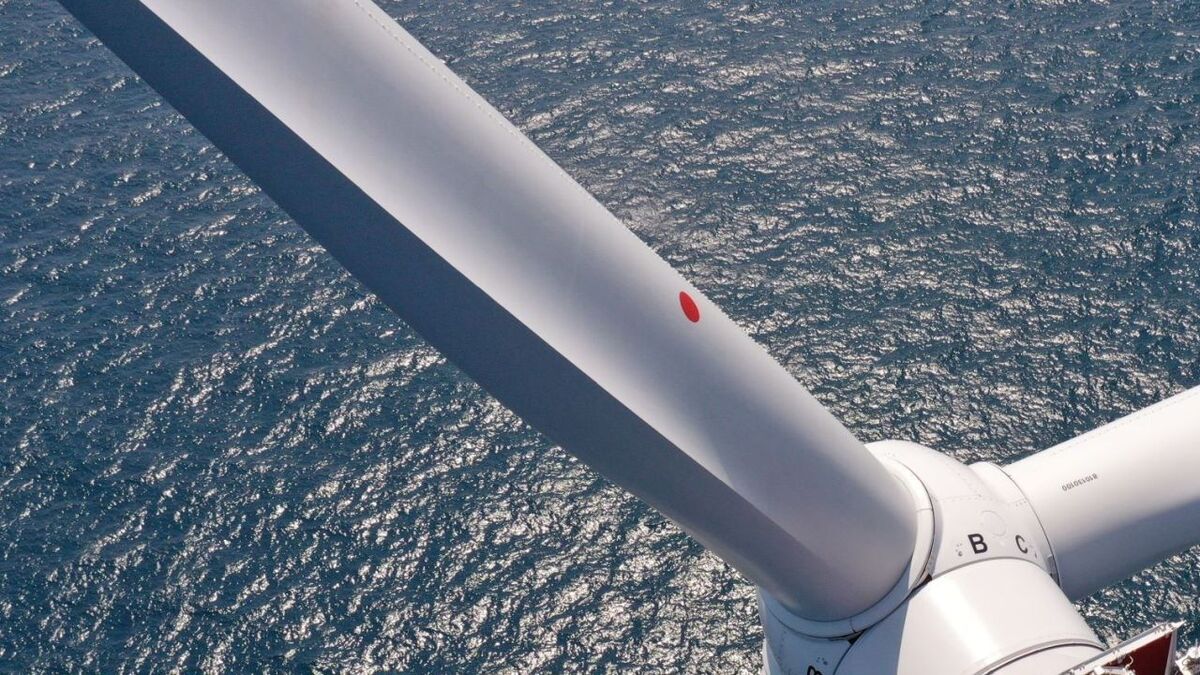One of the world’s leading conservation organisations, WWF, has raised concerns about the marine spatial plans formulated by North Sea and North Atlantic countries and areas identified for the development of offshore windfarms
All EU member states are obliged under the EU Maritime Spatial Planning (MSP) Directive to consider their economic activity and environmental factors related to marine areas to then allocate space, geographically and over time, to different sectors with the aim of ensuring long-term sustainability.
WWF analysed the maritime spatial plans (MSPs) of nine member states in the North Sea and northeast Atlantic. It says none of the plans successfully addresses issues facing the environment in these areas. Publication of WWF’s reports on MSPs came as the conservation organisation and offshore wind developer Ørsted unveiled plan to work together on climate and ocean biodiversity.
The conversation organisation said it was positive that all North Sea member states designated sufficient space for offshore renewable energy development, in order to fulfil the EU’s climate-neutrality commitments. “However,” said WWF, “in the case of Belgium, offshore wind development is permitted within Marine Protected Areas (MPAs) that were previously being considered to support the EU Biodiversity Strategy target to strictly-protect at least 10% of marine areas, where human activities are rigorously controlled and limited.
“Similarly, Germany has published plans to build offshore windfarms on the Dogger Bank, which includes Natura 2000 sites protected under the Habitats Directive. Building such large infrastructure contradicts the conservation efforts associated with MPAs, which focus on reducing human pressures and improving ecosystem resilience to climate change.”
According to WWF, in the northeast Atlantic, no member state considered the impact of windfarm infrastructure development on marine ecosystems, or detailed which areas could be constituted as ‘go-to areas’ for offshore wind and ocean energy production.
“The North Sea is on track to accommodate the largest share of offshore wind generation in the EU, which is critical to achieve climate-neutrality by 2040,” WWF noted.
“However, these projects must not derail their very intention to mitigate the climate crisis. Renewable energy and nature recovery are two sides of the same coin when it comes to the role of our ocean for climate action, as it is our planet’s largest carbon sink and marine ecosystems buffer our coastlines against increasing extreme weather.
“Every alternative must be explored before planning offshore renewables in ecologically-sensitive areas,”said WWF ocean policy officer Helena Rodrigues, lead author of reports produced by the conservation organisation.
Overall, WWF states, northeast Atlantic and North Sea nations are failing to integrate nature protection and restoration in their maritime strategies, both of which are essential to sustain key sectors of the EU blue economy including fisheries and tourism, as well as improve coastal resilience to climate change.
No Atlantic national plan included a cumulative impact assessment of all at-sea activities, meaning not a single EU country is currently working to ensure that the combined effects of maritime sectors in the region remain within sustainable limits for oceanic ecosystems. All member states assessed across both regions failed to designate areas to meet the minimum 30% MPA and 10% strict-protection targets of the EU Biodiversity Strategy.
“The climate emergency and the staggering loss of wildlife in our seas are intertwined and need to be jointly addressed,”said WWF head of ocean policy, European policy office, Dr Antonia Leroy. “Since these national plans stay in place for at least six years, failure to put nature at the heart of how we strategize and manage our at-sea activities will make it increasingly difficult for the EU to overcome these dual crises.”
WWF is calling for improved regional cooperation on marine issues. The Regional Sea Convention OSPAR, which includes non-EU states, has a key role to play in both sea basins and working groups must ensure that national plans are coherent and coordinated across both regions. “Collaborative approaches are essential for developing national plans that consider the cumulative impacts of maritime activities on nature and people, both within national waters and in those of neighbouring countries. MSP is the tool to keep nature and climate goals moving hand-in-hand, and deliver resilient blue economies,” Dr Leroy concluded.
On 26 October 2022, Ørsted said it was entering into a five-year global partnership to “drive a fundamental change in the approach to integrating action on climate and biodiversity by advancing offshore wind that strives to achieve a net-positive biodiversity impact.”
Ørsted and WWF will jointly identify, develop, and advocate for offshore wind deployment initiatives and approaches that not only are in balance with nature but also enhance biodiversity.
Ørsted group president and chief executive Mads Nipper said, “Governments need to accelerate the build-out of offshore wind energy to end their dependence on fossil fuels and power the world sustainably. If done in the right way, offshore wind projects can enhance ocean biodiversity, improving ocean health, and thereby address both the climate and biodiversity crises.
“Addressing climate change and biodiversity loss together allows for a much-needed shift in the way governments, NGOs, and businesses work to solve these interrelated crises. Solutions must complement one another, not come at the expense of each other.”
To help make that happen, the partnership will innovate and test tangible initiatives that improve ocean biodiversity in general and can be used as additional measures to achieve a net-positive impact on biodiversity; develop science-based recommendations for how governments can incorporate ocean biodiversity requirements in offshore wind development; and work to bring together those who use the ocean and those who seek to protect its health and deliver on a common vision for a decarbonised energy system that exists alongside marine nature protection and restoration.
To kick off this work, Ørsted and WWF will invite experts to discuss the best way forward at a joint event at COP27. One ambition for the partnership will be to have nature protection and restoration implemented in future offshore wind tenders by governments globally.






